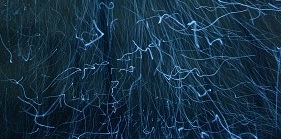
|
commentary
AntiknowledgeIn an age of untruth, we all become low information votersby T.J. Nelson |

|
commentary
AntiknowledgeIn an age of untruth, we all become low information votersby T.J. Nelson |
 he past seven years have seen an almost unprecedented decline in American global
influence. Gallons of ink and trillions of electrons have gone into discovering
why. It seems that the voters have great difficulty selecting effective leaders.
What has gone wrong?
he past seven years have seen an almost unprecedented decline in American global
influence. Gallons of ink and trillions of electrons have gone into discovering
why. It seems that the voters have great difficulty selecting effective leaders.
What has gone wrong?
H. L. Mencken was famous in his contempt for democracy. He wrote that in a democracy the people get the leaders they deserve. If the people are boobs, they will elect boobs to represent them. Rush Limbaugh said the voters are uninformed: “low-information voters.”
But our inability to get the truth from the media, the schools, and the government makes us all low-information voters.
The news media invent fake news stories and impart so much bias to the news that we have difficulty separating fact from fiction. Politicians promise one thing and do another. We no longer expect politicians to tell the truth about anything. Result: a postmodernist malaise, a belief not that there is no such thing as truth, but rather that truth is unobtainable.
As we get more information, we are discovering that less and less of what we know is really true. When it happens in science, it is called antiscience. When it happens in everyday life, it is antiknowledge.
Truth has taken a beating in every aspect of our lives. The global warming scandal, and many others like it, have undermined confidence in science. The revelation that eating fat is only harmful for a small minority of the population has undermined confidence in health experts. The inability of NASA to get a person into space and the near-collapse of our economy have undermined confidence in our space agency and in economists.
You might think such criticisms are unfair. NASA's problems are not engineering failures, but a failure of management and big government. Economists live in fear of former colleagues at big newspapers who abuse their influence and power. Great science is still being done. Nutritionists had solid reasons for not speaking out. And fake scandals, like the recent hoax about chocolate helping you lose weight, make it appear worse.
My molecular biology colleagues used to rant for hours about how cholesterol is essential and how statins are harmful. At the lunch table we couldn't shut them up about it. But it would have been irresponsible for them to speak out in public without proof. It would only have contributed to the confusion. It would be nice if our doubts could be reported fairly. But we knew that would never happen.
But if we never hear dissident voices, how can we evaluate the truth? We can only choose between believing everything and dismissing all of it as lies. Likewise, unless we have credible information on what a politician does, says, or believes in, our only choice is to fall back on estimations of character. We become, whether we recognize it or not, low-information voters, voting on the basis of misinformation and emotion.
What should be an age of rich knowledge is an age of rich misinformation. When we wake up and realize we've been lied to all our lives, we ask ourselves: Who will tell us the truth? Whom can we trust? It is a chilling thought to realize that there is nobody. So we instinctively search for a savior. The danger is that we will get a low-information leader. Or maybe, you might say, another one.
Antiscience
An autopsy of the late global warming movement
Lies, Damn Lies, and Scientific Findings
Lies are not just false statements; they are always social acts—usually acts of aggression.
Fraud in Science
Where there's misconduct in science, there's invariably a deep reservoir
of social and managerial pathology that creates it.
How I Changed From a Granola-Eating Moonbat Into a Running Dog Imperialist
Capitalist Patriarchal Oppressor
A personal journey from—or maybe to—the dark side.
